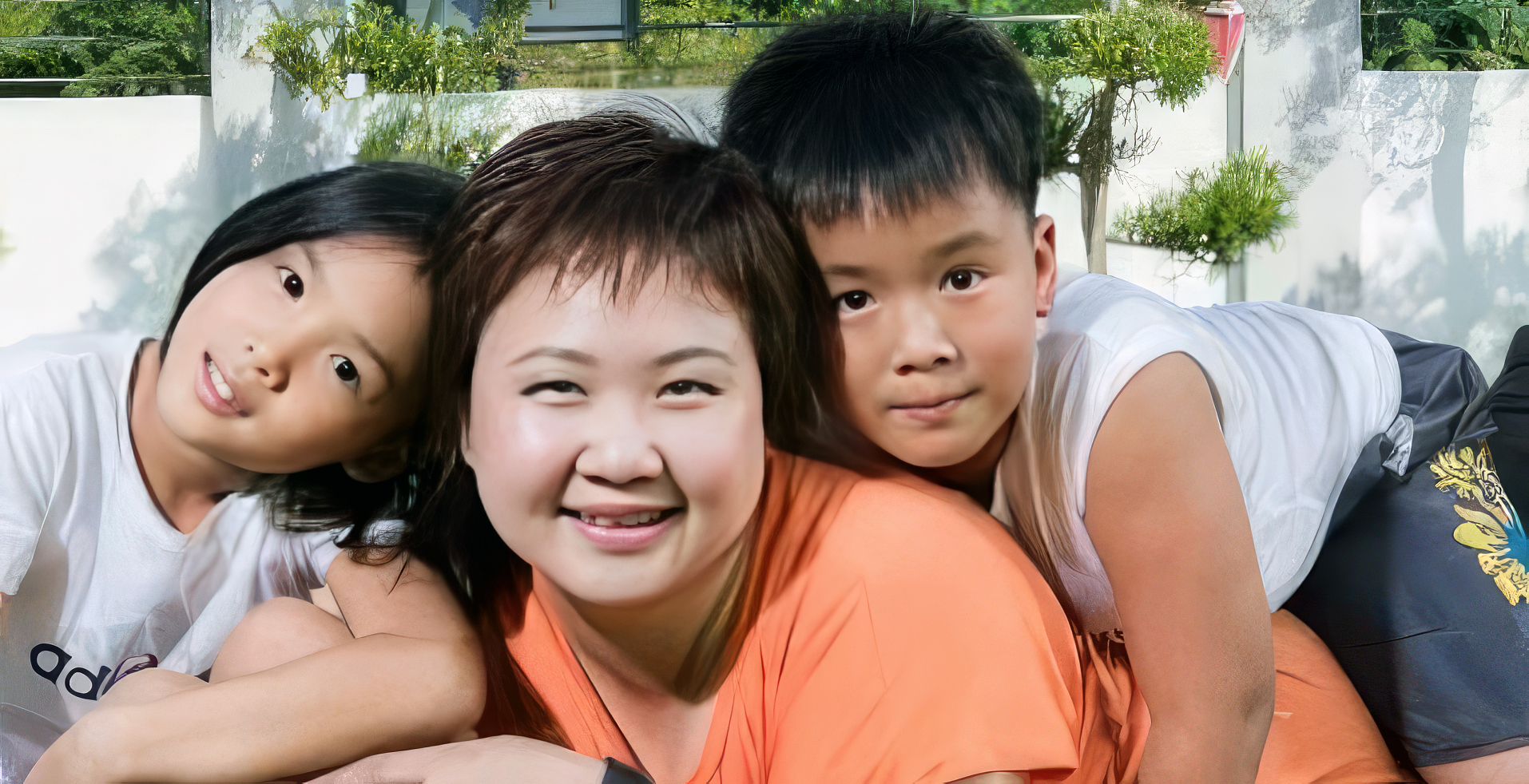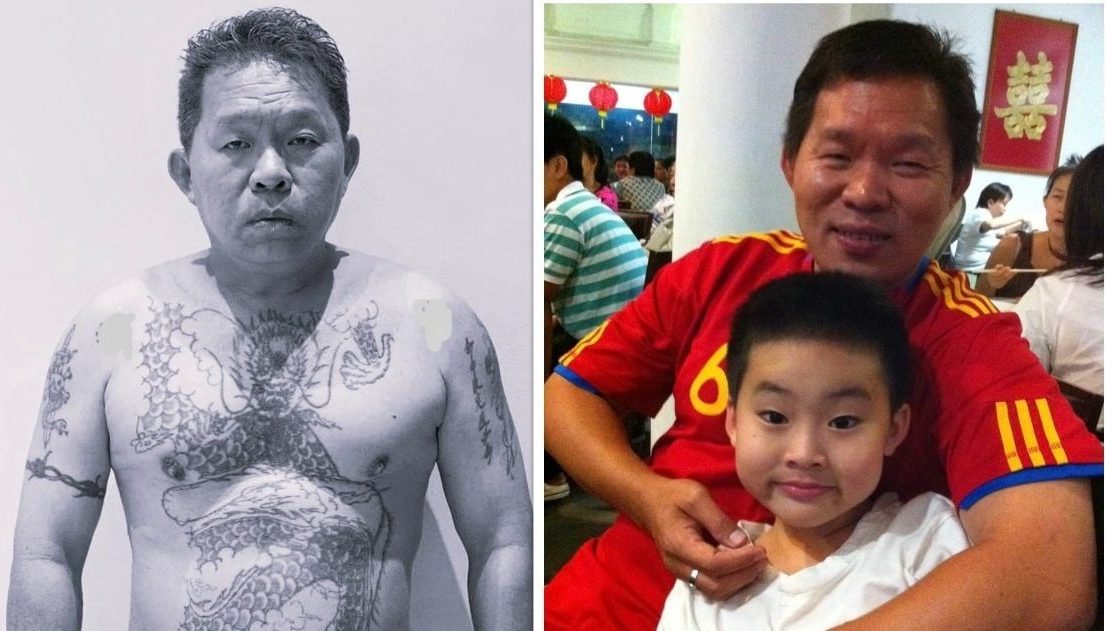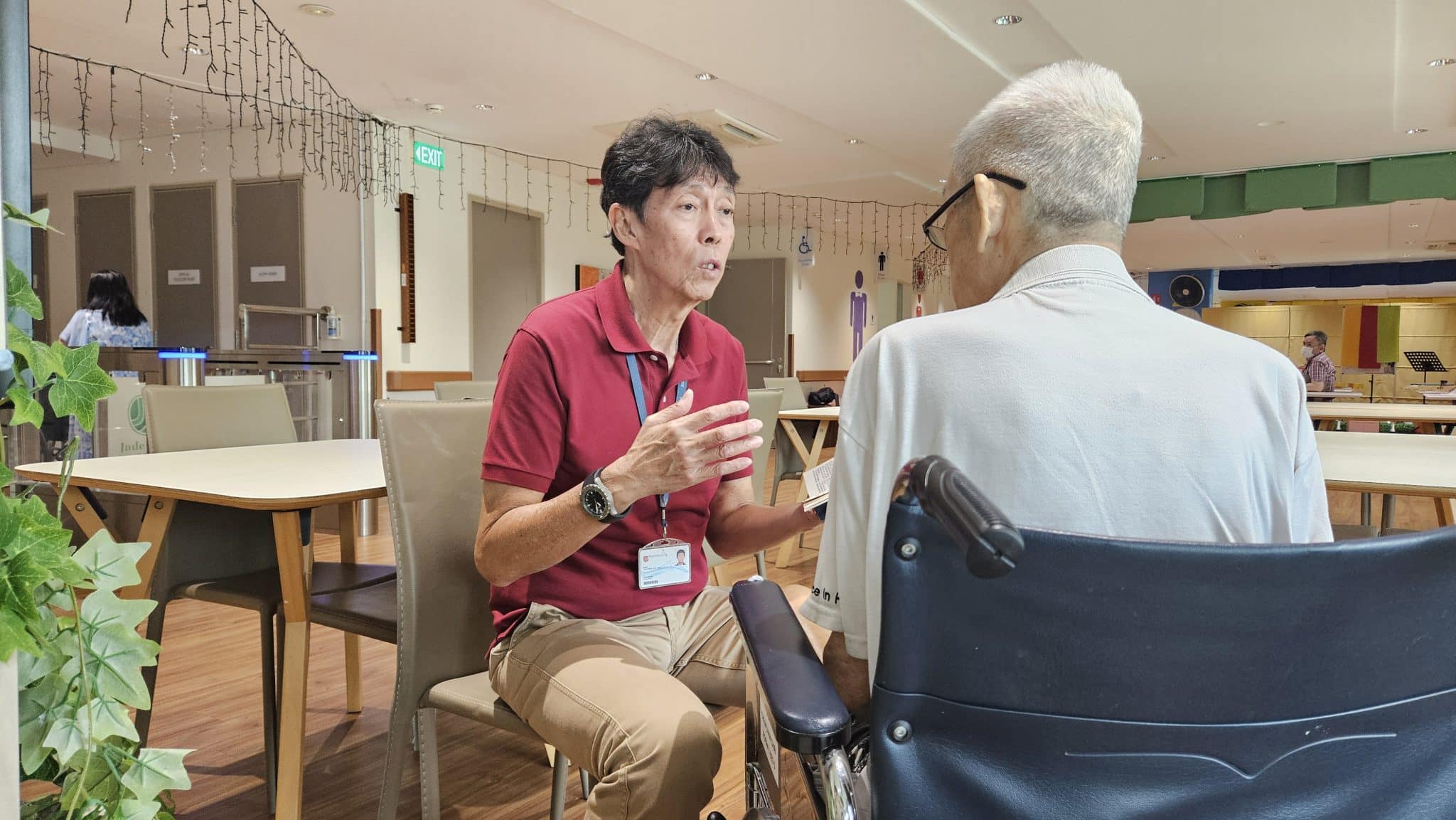Disfigured, broken and brain damaged, but he still says it “happened for a good purpose”
Where is God when it hurts? This Christmas, Salt&Light brings you a series of stories of God's light in the darkness when it matters most.
by Christine Leow // December 22, 2022, 12:19 am

When he was 24 years old, Takalah Tan met with a near-fatal motorbike accident. He lost all his memory, half his brain capacity, his sense of smell and sight in one eye. But today he believes that he was chosen to use his trauma to help others. All photos courtesy of Takalah Tan.
Trigger warning: Mention of suicide and images that may cause distress.
Tan Kok Liang’s story has been told. Repeatedly. In print, in videos, in talks he gives.
The world knows of his achievements in the first half of his life and the motorbike accident that robbed him of a shiny future. But few know of his journey from someone determined to succeed in life since childhood to a man who sees a greater purpose in his tragedy and pain.
This is the story of how Tan Kok Liang became Takalah Tan.
A life lost
Kok Liang was 24 years old when his motorbike, travelling at 100km per hour, scraped a stationary police car on the bend of an expressway and broke into two. He was flung 70m onto a curb.
A Mechanical Engineering graduate from the National University of Singapore (NUS), Kok Liang was just a week away from starting his dream job with a multinational company, one he had beaten 7,000 other applicants to secure. He was set for a bright future.
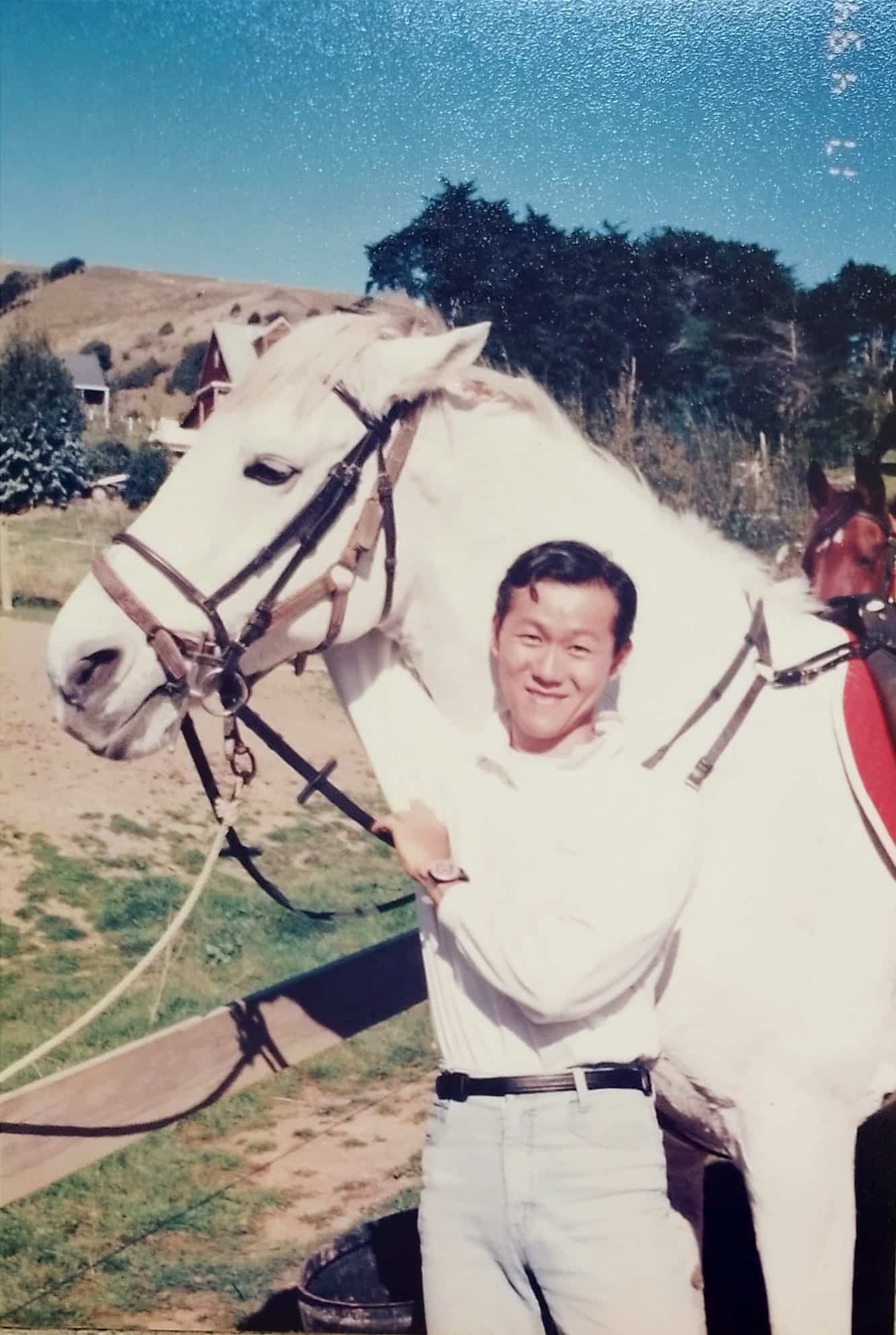
Kok Liang had just returned from a holiday and was about to start a new job when he met with the horrific motorbike accident.
Instead, on that fateful night, he found himself lying on the curb, his face shattered, eyes dislocated, left nostril ripped off and teeth misaligned. The impact of the fall broke three of his right ribs which then punctured his right lung. His left shoulder was dislocated and his right leg was so damaged that it was shortened by 1.5 inches. Worst of all, he suffered brain damage.
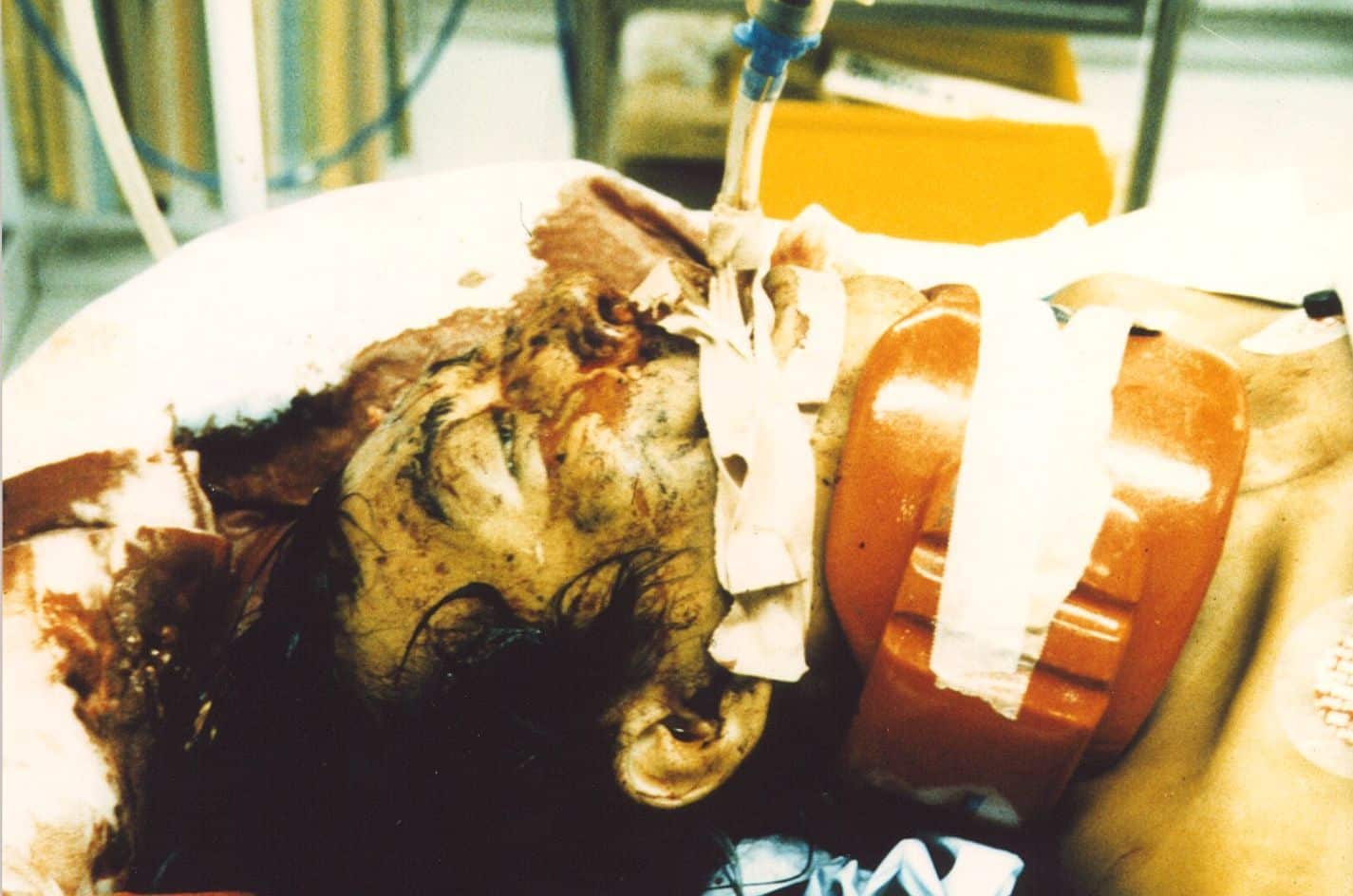
Kok Liang was so badly injured that he was given just 0.1% chance of survival.
Doctors gave him “only 0.1% rate of survival”. But he beat the odds. He spent over three months in the hospital, underwent seven surgeries on his brain and seven more on his face and body.
His father passed away from a heart attack while he was in the hospital.
“My neurosurgeon told me that the broken vessel on the surface of my left brain which kept leaking blood was too small to stitch. So, he prayed for God’s mercy. The broken blood vessel miraculously healed on its own.”
Though the doctors managed to piece together his face and his body, Kok Liang never looked the same again. He is blind in one eye and has lost his sense of smell. But at least his legs are now the same length.
There was little, however, that they could do for his brain. He was told that he lost half his brain capacity and his memory. All that he had studied in school and the knowledge he had accumulated in life was lost.
Less still could be done for the other losses Kok Liang suffered. His father passed away from a heart attack while he was in the hospital. The senior Tan had chosen not to go for a heart bypass so that he could be by his son’s side.
Kok Liang never did start on his coveted job either.
A worthwhile opportunity cost
For a while, Kok Liang struggled to come to terms with his disability.
He had once been an outstanding sportsman who had been a lightweight boxing champion, a school cross country runner and a triathlete. He had led an active life swimming, diving, rock and mountain climbing, and doing archery. Active in Scouts in school, he was also a commando during National Service and was later selected to undergo Officer Cadet training.
The fall from grace from such a height of glory was that much more difficult to live with.
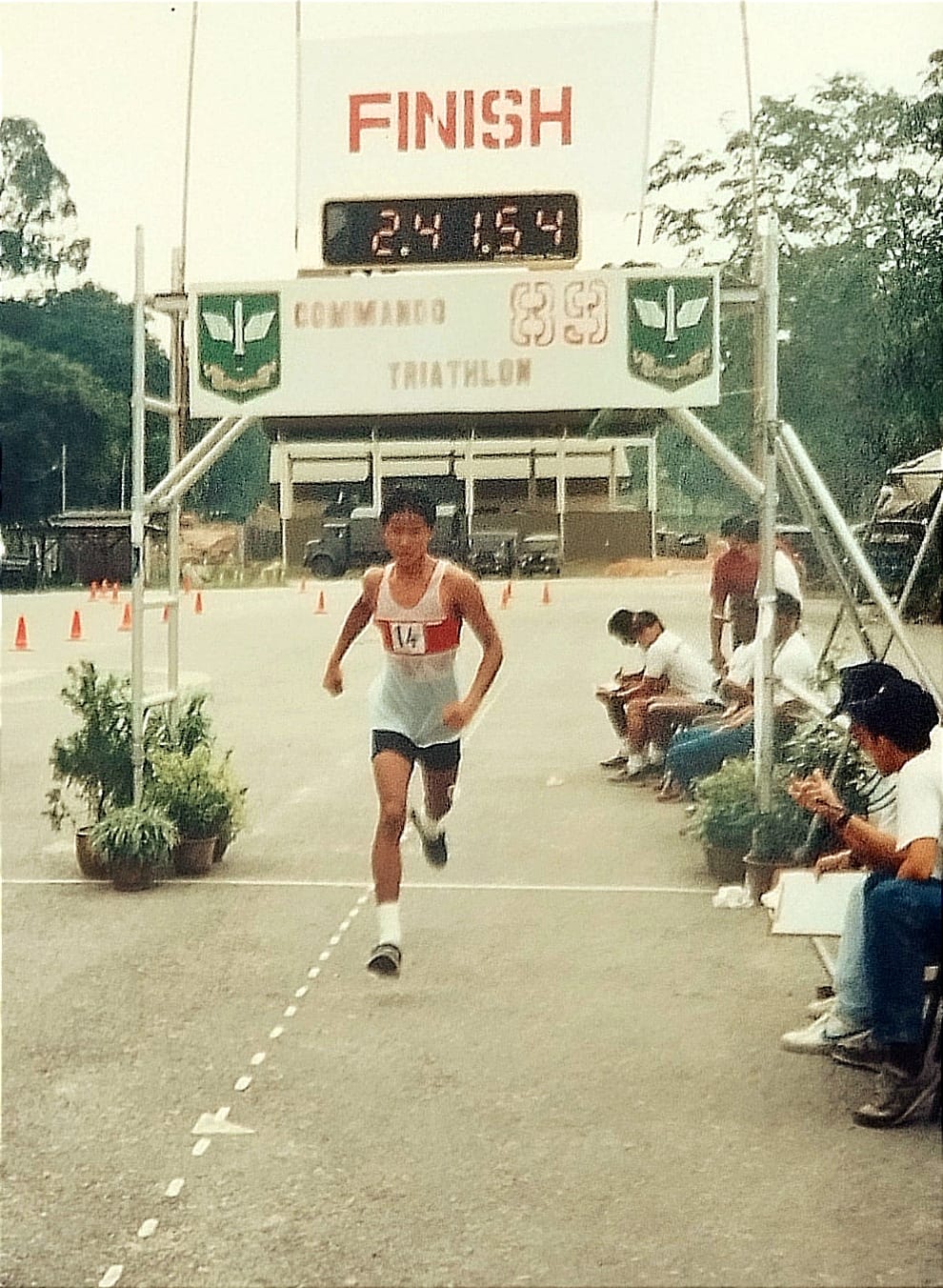
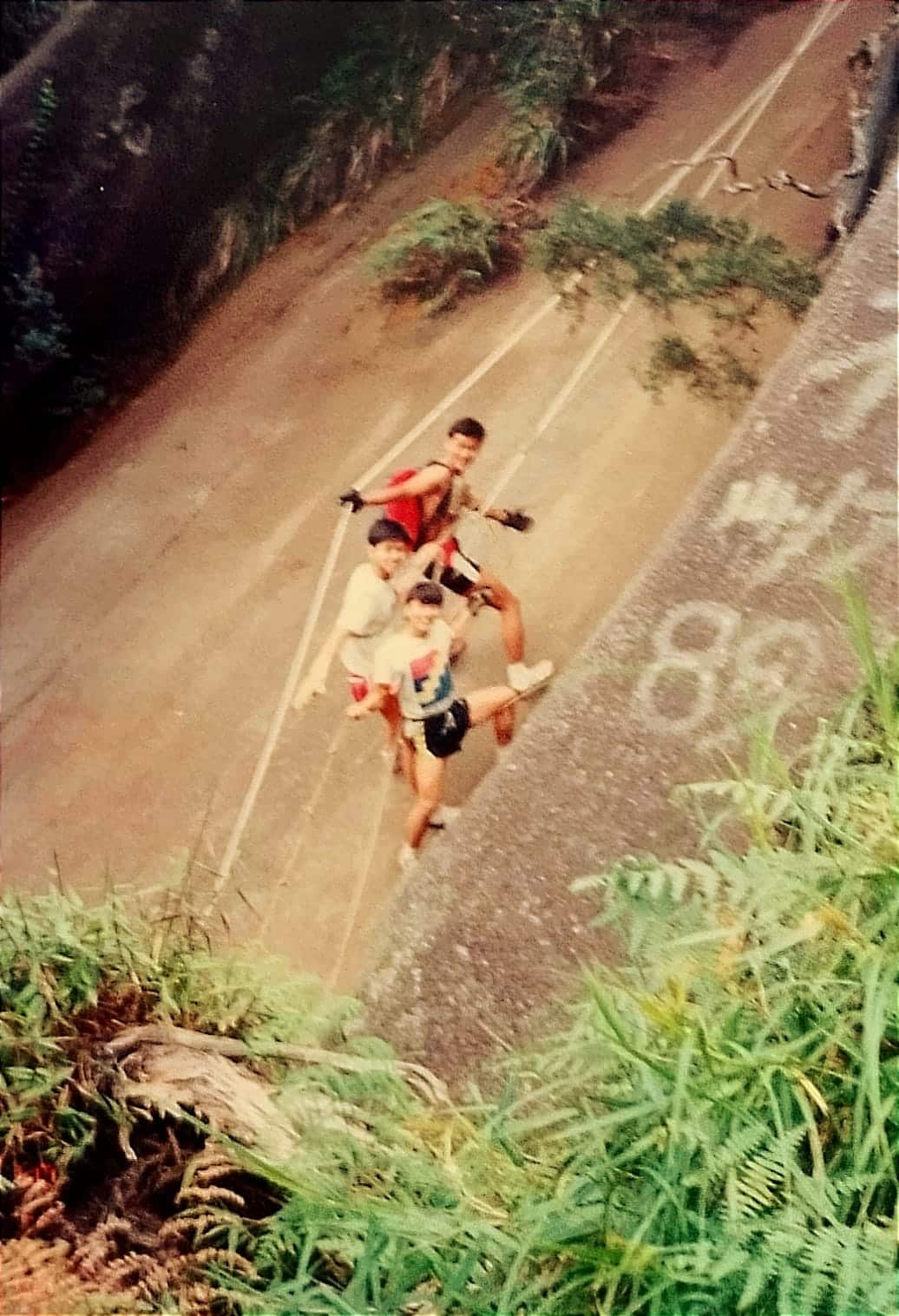
Kok Liang was active and sporty before the accident.
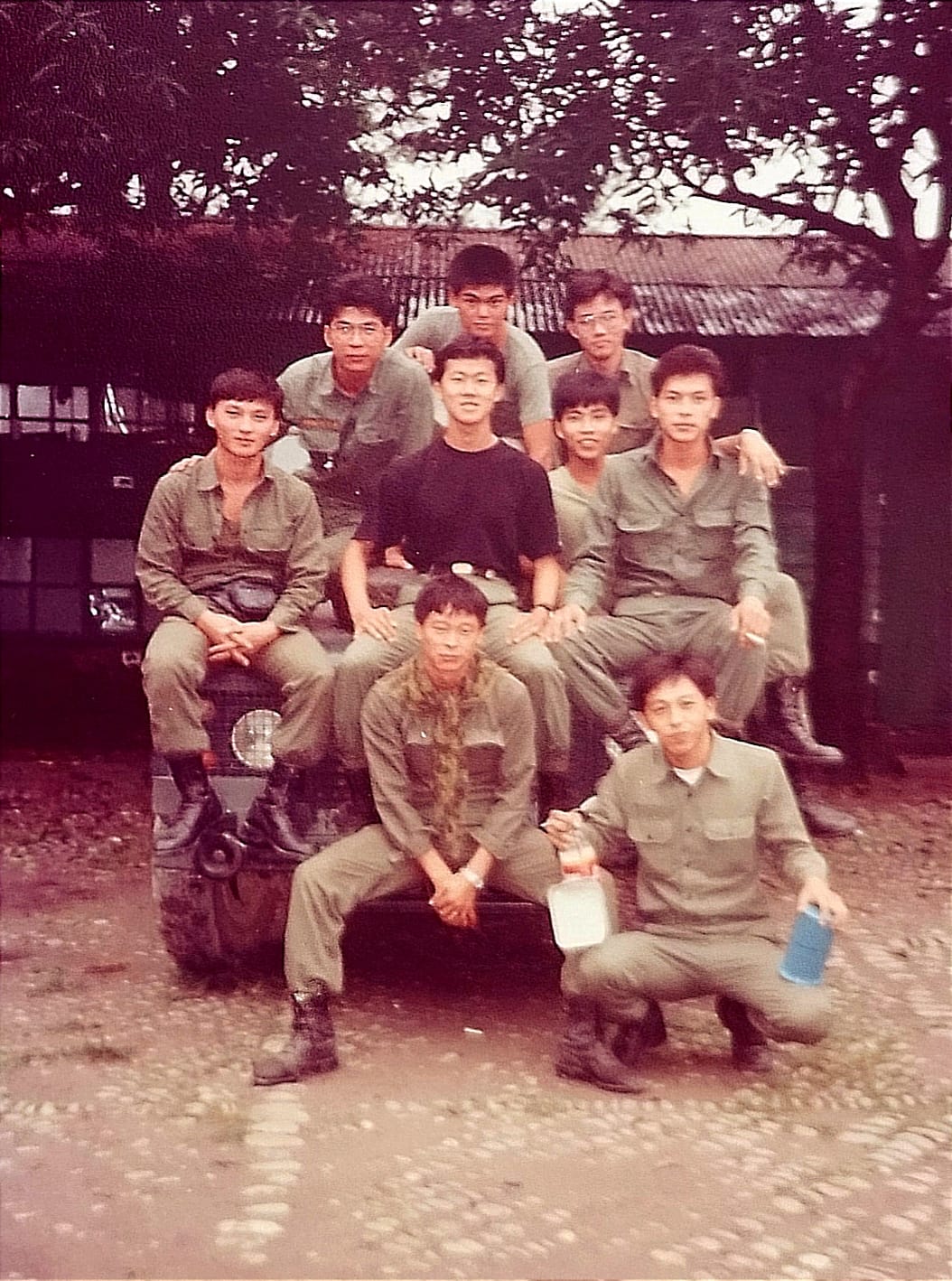
Kok Liang (centre in black) during his army days.
At one point, the pain of his loss was so great, he contemplated suicide quite seriously. But an encounter with a neighbour who had become permanently brain damaged, not even being able to speak as a result of a similar road accident, sobered him up.
“I could discharge the fluid in my brain and that helped me keep my thinking abilities. But I look like this.
“My neighbour looks fine but became permanently brain damaged. It is an opportunity cost I can bear.”
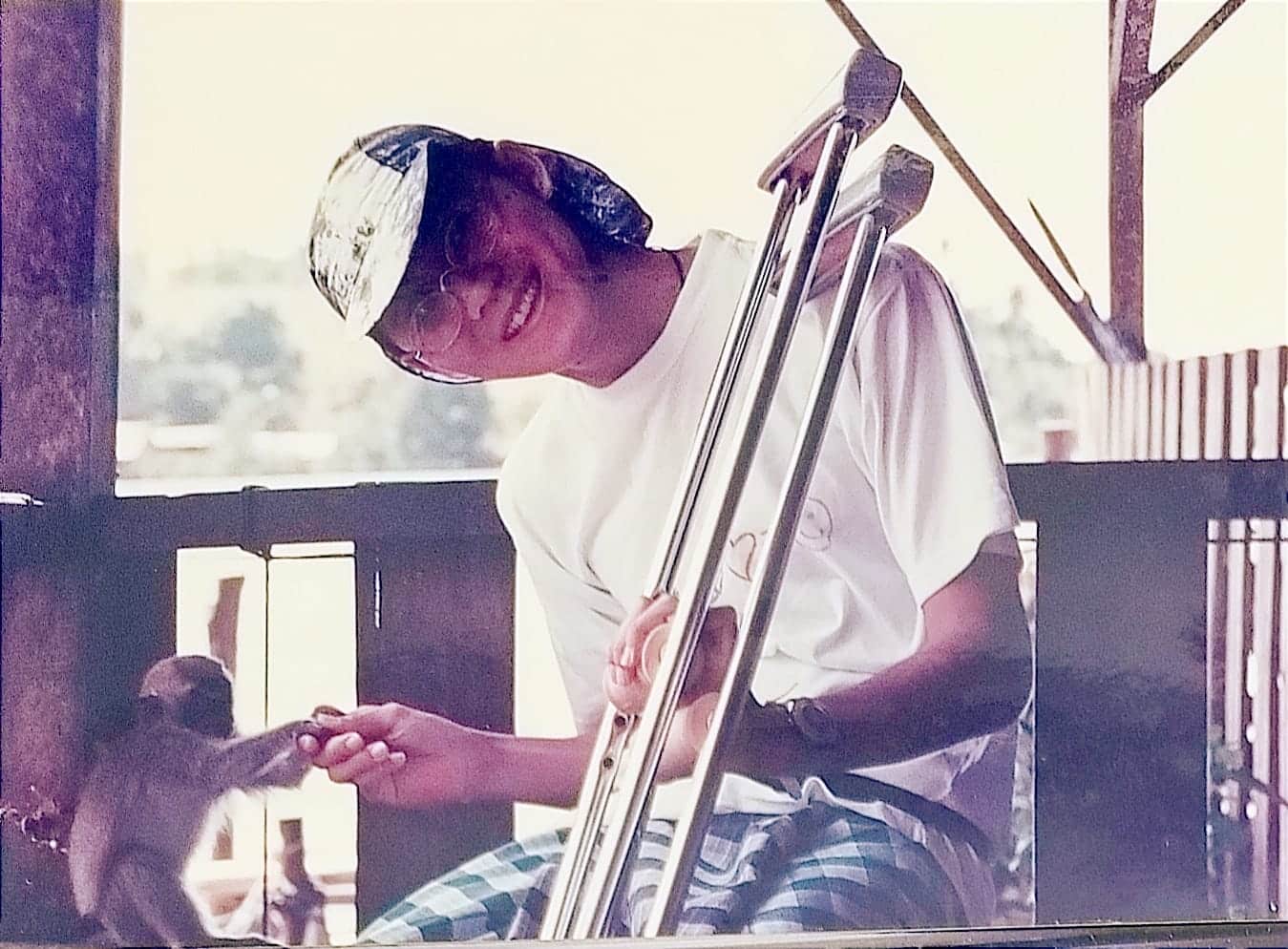
Kok Liang never looked the same again after the accident.
Two years after the accident, he legally changed his name to Takalah Tan, a new identity to match his new life. Takalah was a name he had made up for himself when he was in secondary school by adding “A” between his initials – TKL – and completing it with an “H” at the end. The A’s were because he had wanted to ace every exam.
A sense of purpose
Takalah’s perspective about life and its tragedies would change even more.
While he was hospitalised, Christian relatives and friends from his junior college, where he had been a student councillor and star athlete, had prayed for him.
When he was discharged and well enough to move about, his friends invited him to church. That he even agreed to go was change enough because, although he had spent four years in a Presbyterian secondary school, he had “never taken religion seriously”.
“My family isn’t Christian and studies were more of a priority for me then.”
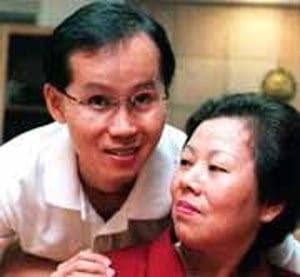
Takalah and his mother.
Takalah remembered the “warm care and comfort” the people in church showed him. But he admitted that, during that season, most things were a blur for him. He was struggling to regain his memory and still coming to terms with how broken his body and his mind had become.
“I was often confused about why it had to be me and not someone else. At one stage, I wondered if I could have been chosen for a bigger purpose in life and, if so, I had to find out what that was.”
It was during this season of questioning that Takalah chanced upon a poster of a lighthouse sitting beside troubled waters.
“If He had chosen another, that person may not be able to take it.”
“I just felt that I was the chosen one to be the lighthouse in troubled waters for the sake of many. What happened to me was pre-planned for good.
“When I realised this, it became rooted in my mind as a mission that I could not shake. I sensed that I was to dedicate my life to helping others.
“This very powerful realisation gave me a lot of strength and helped me to receive feedback and criticisms in a different light. It helped me to stand firm.”
It was then that Takalah realised that all the wins in the first 24 years of his life, all the training of both his body and mind, were to prepare him for this “God-planned role”.
“My growing up experiences prepared me well with a good foundation for this. God is wise.”
His injuries and the effects thereafter were “no longer a burden” after that.
A faith that supports
Meanwhile, Takalah set about putting his life back in order.
To help pay for his own medical bills, he worked temporarily at the back rooms of Reuters Singapore. Then, he joined his brother’s courier dispatch company doing administrative work.
A year later, in a bid to fulfil his life purpose of helping people, he enrolled at the National Institute of Education (NIE) and became a Math and Physics teacher in 2000, six years after his near-fatal crash.

Takalah taught for a season.
After serving his teaching bond, he went to Australia to do a post-graduate diploma in Rehabilitative Services for brain-injury surivors at La Trobe University in Australia. There, after “wandering around in life”, he felt ready to make a decision about his faith. He got baptised at a church.
“I faced a lot of issues that caused me to have negative thoughts. But God gave me the strength, the direction and a purpose to live on. God gave me a new mind and a new destiny.
“I don’t blame God for what happened to me.
“Christ had to die for us. Did He complain? He did not. This is something I can learn from. What Christ taught us, we need to learn and understand and duplicate his selflessness.”
“With God, I have a spiritual ballast.”
Takalah’s time in Australia also strengthened his resolve to help others in spite of his disabilities.
When he was in need of a place to stay, it was a Greek family he met while browsing at a jumble sale who offered him a room in their home. For two weeks, he lived with them till he could find a place to rent.
“The man had survived a stroke when he was in his 40s but had become paralysed. His wife is diabetic. Yet, this family showed me unconditional love. What more could I say? Then I can help people, too.”
When Takalah returned to Singapore in 2006, he got to know a motivational speaker who had been a teacher until she suddenly became blind in her 40s. At first, she lost sight in one eye because of a detached retina. Then, the other eye became blind as well, all within a span of just weeks. She invited him to a cell group for people with disabilities at Faith Community Baptist Church (FCBC). Transport was provided, making it easier for the members.
“This cell group has a place for those whom society leaves out or does not respect. They provide media support and activities for us to participate in. I am very, very grateful for their selflessness.
“With God, I have a spiritual ballast. If it were only me convincing myself, it would be temporary.”
Not long after, Takalah got baptised at FCBC.
A life well lived
Takalah is now a therapy assistant at a non-profit organisation, helping the elderly in their physiotherapy sessions and exercise routines. The job was God-given. A Christian doctor he met encouraged him to get certified as a therapy assistant and introduced him to the job.
When Takalah is engaging the elderly, he is in his element. Energetic, encouraging and entertaining, he is a hit with the seniors.
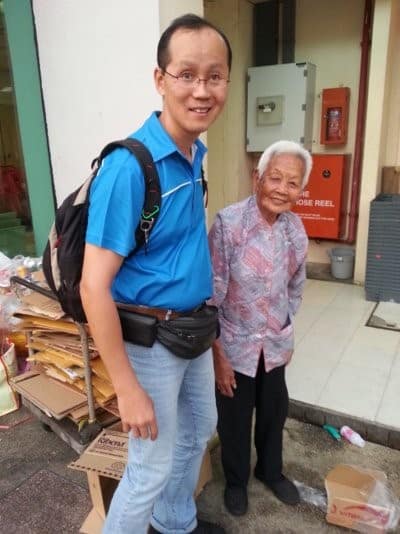
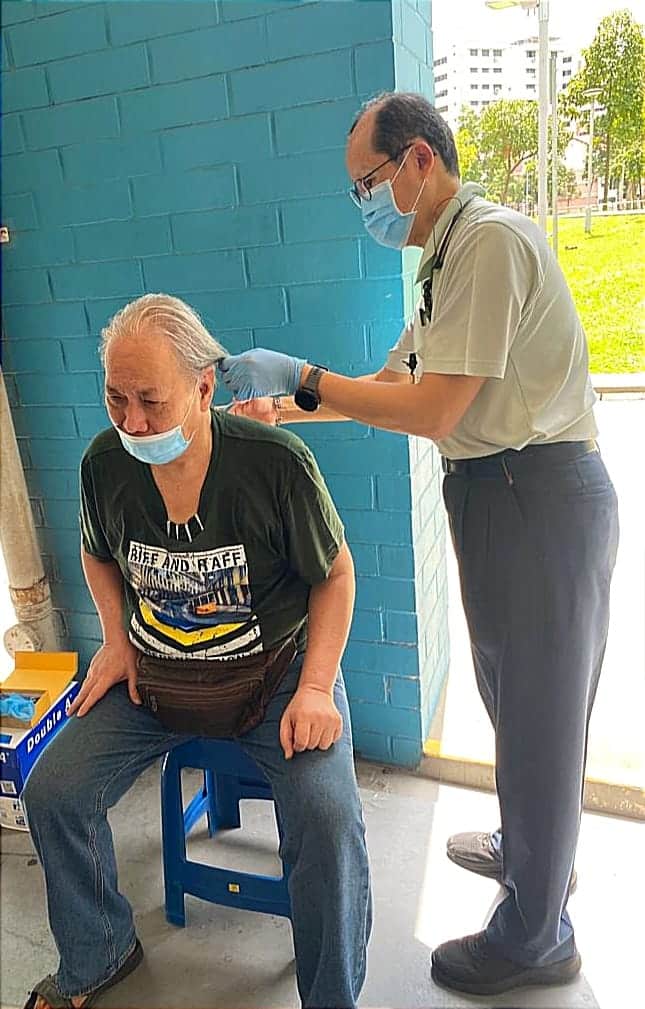
Takalah has found his calling in working with the elderly.
“They love to see the way I wiggle my butt when I demonstrate dance moves. Some try to follow me but after a while they give up. You have to have thick skin to do the gyrations,” said Takalah with a laugh.
“I love working with the elderly. They understand my condition and are very inclusive and receptive, and they are kind to me. This job allows me to work without being hindered by my handicap.
“When I do the exercises, I prepare nice boxes to display my speakers so they can hear me. I equip myself so they can go through the routine joyfully. When their health improves, I get inspired. I know I have lived my life well.”
Takalah also volunteers with Broken Brains, a brain injury support group.
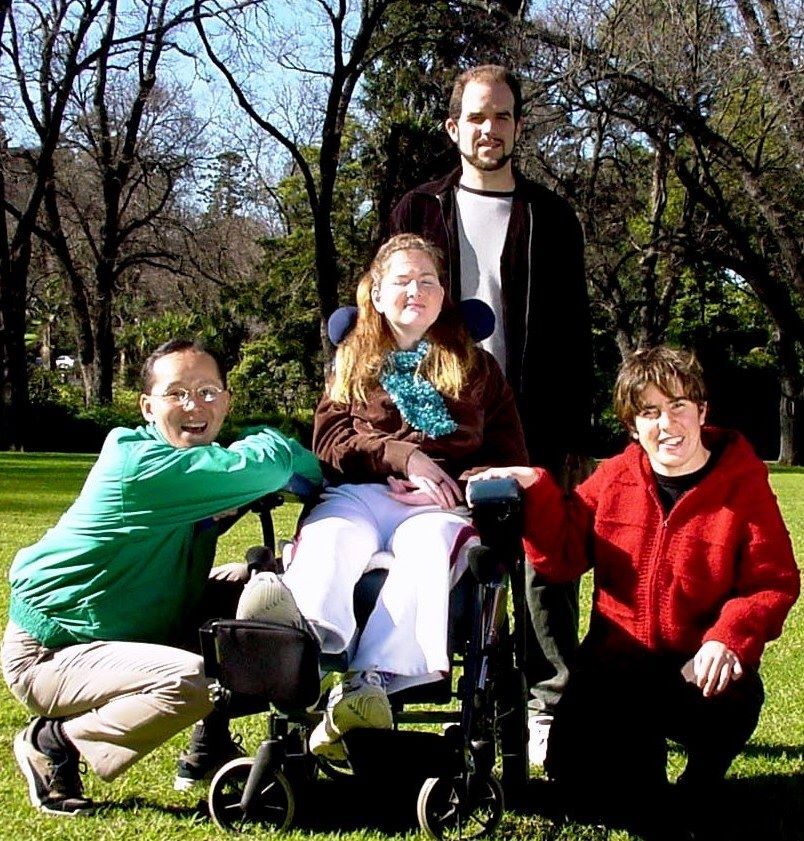
Takalah with friends who have also survived brain injury.
“When others know what I have been through, they get inspired. They say, ‘My challenge is nothing compared to what Takalah is going through. If Takalah can be a victor over his odds, I can too!'”
He is a motivational speaker as well, having honed his public-speaking skills at a toastmasters club over three months. He shares at workshops, schools and in churches.
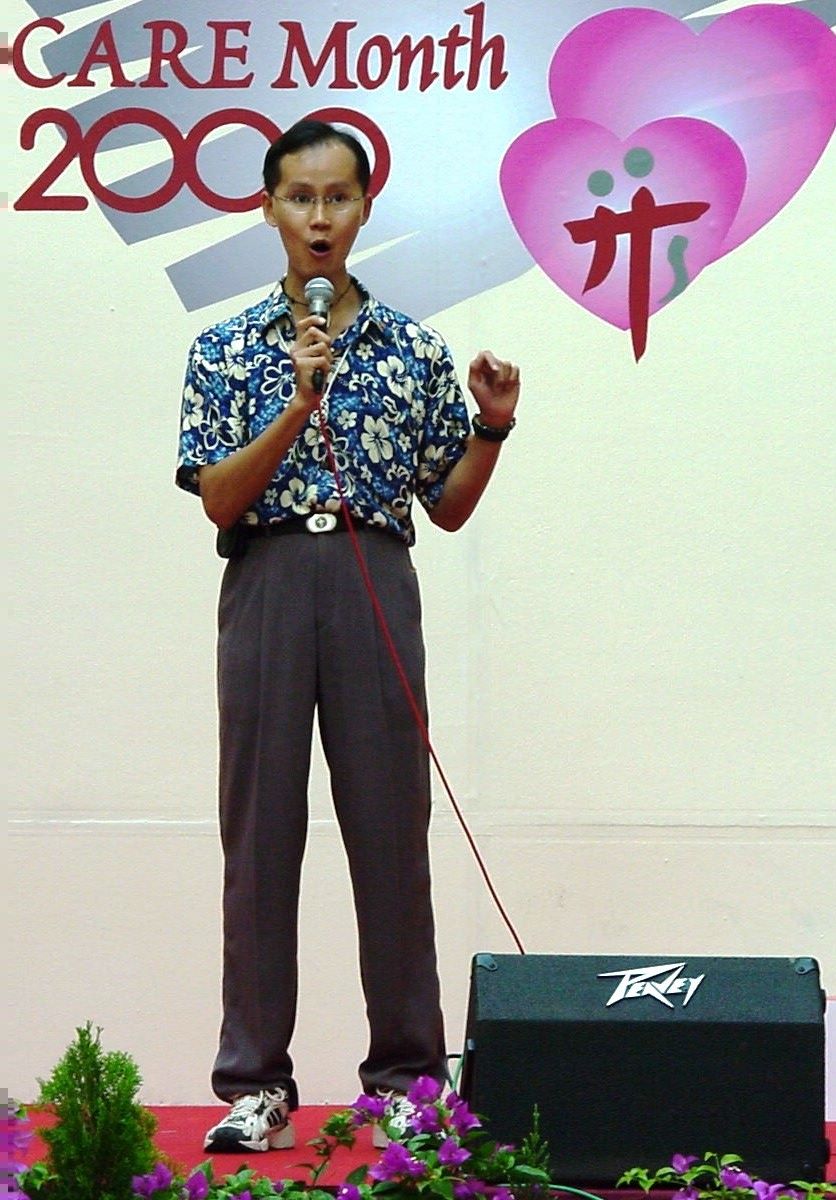
Takalah often gives talks sharing about his traumatic experience and miraculous recovery.
In addition, his story has been featured in videos and articles on the internet as well as told on national television.
“If I can help to empower and enable people so they will not feel trapped and imprisoned by the devil and do crazy things but to take on what they encounter and make the best of every situation in life, why not? It makes my traumatic brain injury more worth the while.”
“I realise some people need to go through troubled waters in order be lighted beacons for others.”
Nearly 30 years after his body was battered and shattered, Takalah is running again.
On the day of his interview with Salt&Light, he had completed a half marathon, his second this year.
“I have learnt to live with what I have and to make the best of what I have. I won’t make my losses my handicap. In fact, I don’t see myself as disabled. I am uniquely able in some ways!”
The Kok Liang who used to ask God why he had to suffer is gone. Takalah now has a different understanding of God.
“God is a loving God. It hurts Him to see us go through suffering. My mum used to be very strict with us kids. All of us got the rotan (cane) quite badly when we did wrong things. When she hit us, she would say, ‘When I hit you, it is like hitting myself.’ She would cry while hitting us because we are born of her.
“I realise some people need to go through troubled waters in order be lighted beacons for others. That is what I have been chosen to be.”
This is Part 2 of Takalah’s story. Read Part 1 here.
MORE STORIES ON GOD’S LIGHT IN THE DARKNESS:
In a coma and dying, she saw visions that readied her for life without limbs when she awoke
We are an independent, non-profit organisation that relies on the generosity of our readers, such as yourself, to continue serving the kingdom. Every dollar donated goes directly back into our editorial coverage.
Would you consider partnering with us in our kingdom work by supporting us financially, either as a one-off donation, or a recurring pledge?
Support Salt&Light